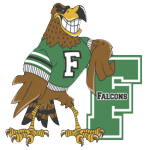First Grade Newsletter: February 2024
Hello 1st Grade,
We always look forward to seeing each and every student everyday! Attendance is extremely important to a student's academic and social success. Our school is encouraging friendly competition with our snowman attendance building! Please help motivate your student to help his/her class contribute toward their classroom success. Learning at school is “snow” much fun.
Important Dates & Reminders
- February 19, 2024 - No School, President’s Day Holiday
Language Arts
What are we learning?
- In phonics, students will be learning about contractions and long vowels.
- In writing, students will be writing realistic fiction stories.
- In reading, students will be focusing on vocabulary and story elements of fiction and nonfiction books.
Home/School Connection
Questions to ask your student:
- When reading stories at home, ask your students what they think unfamiliar words mean.
- When reading stories at home, ask your students if the book is fiction or nonfiction? How do you know?
- When reading fiction stories at home, ask your students, “how does the character change throughout the story?”
Math
What are we learning?
- We will be learning about composing and decomposing numbers with fluency to 10.
- We will also be practicing strategies for composing and decomposing numbers up to 20.
Home/School Connection
- Practicing adding and subtracting numbers as fast as possible.
- Ask your student how many ways they can make a given number using addition and subtraction sentences.
Questions to ask your student:
- What does it mean to subtract? What does it mean to add?
Science
What are we learning?
- Animals need certain things in order to survive in their environments
- Animals may acquire their needs differently, depending on their physical characteristics
- Physical characteristics can determine whether an animal lives in water or on land
- Physical characteristics determine an animal’s method of movement
- Animals have a variety of physical characteristics, including appendages and different body coverings, that help them survive
- A plant is a living thing that makes its own food
Home/School Connection
Questions to ask your student:
- How do living things survive?
- How do we classify living things?
- How do models help us learn?
Social Studies
What are we learning?
- The student will describe and make connections to the work of Martin Luther King Jr.
- The student will describe and make connections to the impacts of influential Virginians who helped form a new nation, with a focus on, but not limited to George Washington and Thomas Jefferson.
- The student will make connections to people and events associated with:
~George Washington Day (Presidents' Day)
~Juneteenth*
~Independence Day
Home/School Connection
Questions to ask your student:
- How might people honor and celebrate traditions and events of the past?
- How do the contributions of some American leaders still impact people today?
- How can the actions of one person change people’s beliefs?
AAP Corner
What are we learning?
Students will be engaging with Jacob’s Ladder advanced comprehension lessons. This AAP lesson asks students to discuss big ideas about a text with their peers.
Students are continuing to work on analogies in the Critical and Creative Thinking lessons. Ms. Spengler will read the book, Q is for Duck and students will make their analogies for an animal. An example from a student was “b is for shark, because they bite”.
Home/School Connection
Questions to ask your student:
- Ask them to come up with different alphabet puzzles. It can be a game while driving in the car. An example is “Why is ‘s’ for cookies?” then your child can guess why. (because they are sweet)
ESOL
WIDA assessment information: The state of Virginia administers the WIDA ACCESS for ELLs assessment from January 16-March 15. This assessment monitors students' progress in learning academic English in the areas of reading, listening, speaking, and writing. Families can find translated information about this assessment at this link: https://wida.wisc.edu/resources/what-access-ells
Please encourage your child to do their best! Please also be sure your child is well-rested for test days (and every school day)!
Students in grades 1-6 can continue practice at home for the assessment through this link: https://wbte.drcedirect.com/WIDA/portals/wida/assessment_selection?adminId=596372

